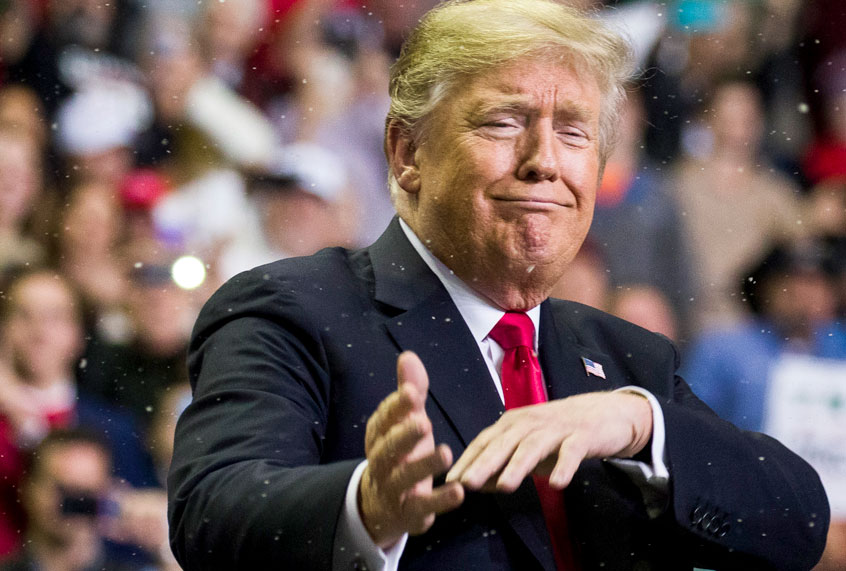A New York podiatrist may have given President Trump the bone spurs diagnosis that helped him avoid military service in Vietnam as a favor to Trump’s father, the New York Times reported.
The daughters of the foot doctor, Larry Braunstein, described the relationship as “family lore” to the Times, saying that they didn’t know if their father ever actually examined Trump, but that he signed off on the diagnosis as a favor to Fred Trump, from whom their father rented his office in Queens,
“I know it was a favor,” Elysa Braunstein, whose father died in 2007, said. The Trumps sold the building in 2004. “What he got was access to Fred Trump,” she continued. “If there was anything wrong in the building, my dad would call and Trump would take care of it immediately. That was the small favor that he got.”
The Times reported that they were unable to find any paper evidence corroborating the Braunsteins’ account, including medical records or other documents related to Trump. Braunstein’s daughters also told the Times that another podiatrist and family friend, Manny Weinstein, may also have played a role in granting Trump the exemption, but it was unclear how. Weinstein, who died in 1995 and lived in two apartments in Brooklyn owned by Trump’s father, may have had a connection to the draft, the daughters said.
The daughters are Democrats and said that they are not fans of Trump. They said their father “grew tired” of Trump as he became a celebrity.
In recent years, Trump has been widely ridiculed by critics over the bone spurs diagnosis, who have found it “implausible that a healthy and athletic 22-year-old, on the cusp of being declared fit for service, could suddenly be felled by growths in his heels,” the Times wrote. In 1968, Trump was granted a 1-Y classification, a temporary medical exemption, which meant he could be considered for service only in the event of a national emergency of an official declaration of war. In 1972, his status changed to 4-F, a permanent disqualification.
During the 2016 campaign, Trump told the Times that he did not remember the name of the doctor who gave him the diagnosis and did not provide any paperwork related to the exemption. He also did not mention any links between the doctor and his father.
Alec Hochstein, who worked with Braunstein in the late 1990s, told the Times that the podiatrist “spoke very highly” of the Trumps, recalling that the landlords were “very open to negotiating with him and letting him stay at a rent he was comfortable with.” Hochstein said that he did not remember any discussions related to the bone spur diagnosis for Donald Trump.

